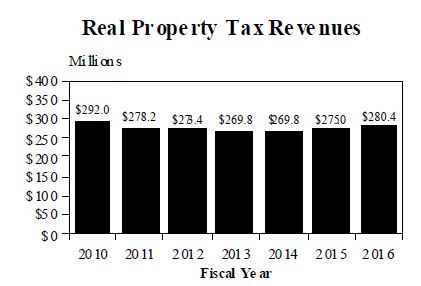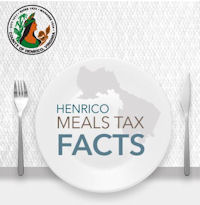 I wrote this op-ed for the Times-Dispatch, which published it this morning. JAB
I wrote this op-ed for the Times-Dispatch, which published it this morning. JAB
As an 11-year resident, I long deemed Henrico County a well-run locality. It has the lowest property tax rate among Virginia’s largest counties yet maintains an AAA bond rating. Its employees are helpful and courteous, and its schools are reasonably well regarded. But I have begun to change my appraisal since county officials began pushing for a 4 percent meals tax, to be put to a referendum this fall. I feel less like a citizen of Henrico and more like a subject.
I understand that the county faces challenges coping with teacher pensions and environmental regulations, and I acknowledge that the board has cut spending significantly since the 2007 recession. But I view those difficulties as a prompt to start thinking more creatively and analytically about how to provide core services.
Does Henrico really need to operate a public golf course? (There are more than 30 courses in the Richmond-Petersburg area.) Does the county really need to film feature stories for its own public-access channel? How aggressively are county officials implementing “smart city” technologies to drive down costs and improve responsiveness? Henrico was an early adopter of integrating PCs into the classroom — why isn’t it leading the way in integrating online learning into the curricula? Finally, why isn’t the county doing more to encourage mixed-use development in places such as Innsbrook to generate more tax revenue?
I have long been dubious about higher taxes. What pushed me over the edge, however, was the publication of an expensive website and video, www.henricomealstaxfacts.com. The website cost $20,250 in county funds, and that doesn’t include direct mail, posters and utility bill inserts for the rest of what a county spokesman describes as a “purely informational” campaign. The supposed intent is to educate Henrico taxpayers about the meals tax so they can make an informed judgment this fall.
State law forbids localities from using taxpayer dollars to sway voters: “The materials or advertisements shall not advocate the passage or defeat of the referendum question.” The county website does not come right out and say, “Vote for the Henrico Meals Tax.” But it does everything short of that by providing selective information.
We read on the website, for instance, that after cutting $115 million from its budget, “the county cannot make more spending reductions without significantly impacting Henrico Schools and Public Safety.” In a video interview, County Manager John Vithoulkas reiterates, “If we make a turn now, then as a county, I believe, we can miss that fiscal iceberg. … If the meals tax fails, the reality is, then, there are two choices: We are looking at a 6 cent real estate tax increase or service level reductions.”
What neither Vithoulkas nor the website bothers to inform Henrico residents, however, is that a surge in property values this year will create a revenue gusher next year. In its FY 2014 budget, the county forecast that property tax revenues would increase only 2 percent in FY 2015 and 2016. Such a conservative assumption may have been warranted at the time, but the market has shifted. Read more.






